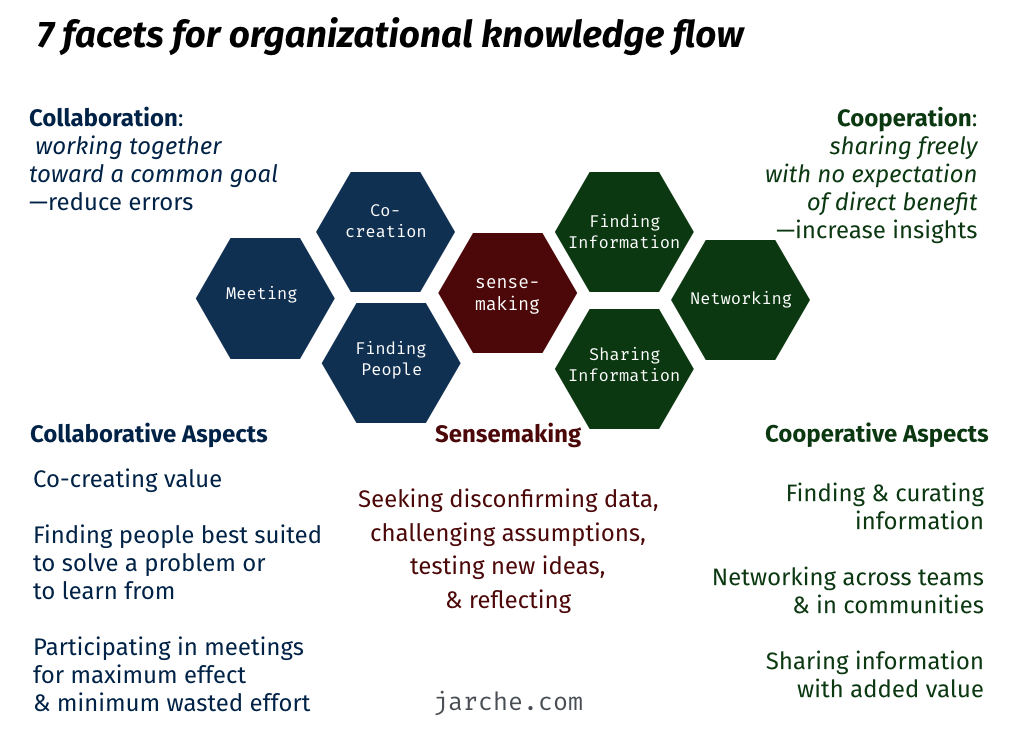In the past year, many workers in the technology sector have lost their jobs, often replaced by the vision of what generative AI can do instead. I also know Bio-Tech layoffs and now we see massive layoffs in the American public service. A consequence of all these job losses is that fewer people will have to do more work. My observations of large -scale organizations were that most people are busy, most of the time. Back to back meetings are not rare and overflowing by e-mail.
This is a challenge for improving performance, learning and knowledge management. All new attempts to improve them will be considered additional work in addition to a demanding workload. While those of us in the field of organizational performance improvement know the long -term value of better sharing, collaboration and cooperation of knowledge, the surprise of short -term pain can be insurmountable. I learned that it is important to find and make more time and space for knowledge workers.
While developing the Work more intelligently in Citibank Project We also examined how we could improve meetings, because so long was devoted to it.
Two types of behavior are necessary for the knowledge flow of today's workplace – collaboration and cooperation. Cooperation is not the same as collaboration, although they are complementary. Cooperation differs from collaboration in that it shares freely without any expectations of reciprocity or reward.
Collaboration works together for a common objective, often directed outside by management or a customer. Collaboration includes – Coordination of tasks with a minimum of time and efforts, to find the most suitable people to solve a problem and to participate in meetings for a maximum impact and a minimum wasted effort.
If we cannot collaborate well, we often cannot find the time to cooperate, this is where we can obtain information on innovation through sharing and networking.
Therefore, improving the function of meetings and when meetings can make better use of everyone's time and also open time and space for collective learning. It is often a good starting point.

I wrote several articles on how to conduct better meetings. I suggest choosing one or two of the ideas and trying them for a few months. Different departments can choose different options. They can share what they learn in the process.
Does your organization have optimal meeting practices? If you have any suggestions, please share them.


